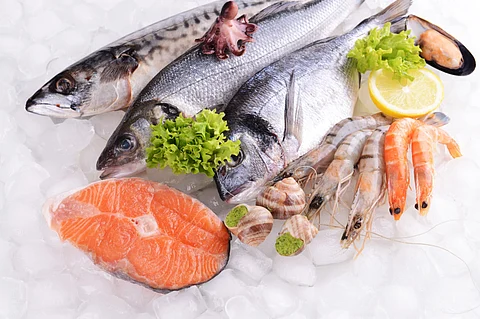

The Seafood Council has produced a report on seafood trends in which the effects of the pandemic and the crisis, technological developments in the fishing industry, and social sustainability have been discussed in depth.
The primary objective of the report is to bring clarity and assess the recent advancements in the seafood industry. The report serves as a valuable resource for understanding industry changes and preserving key elements. It offers explanations for observed behaviors, highlights areas for improvement, and guides essential modifications.
The pandemic, inflation, and the war have all changed consumer habits at home and outdoors. Thomas Jakobsen explained that all these issues have had an impact on consumers. The current trend is the purchase of cheaper products compared to 2019.
Society is demanding food earlier and earlier, but technology is needed to produce and deliver in this short period time. In this regard, analysts presented a recent report on technological advances, something that has been a feature of the Norwegian fishing industry.
Moreover, the report clarified that advancing in technology development and artificial intelligence (AI) is crucial for achieving future success. The fact that they make it easier for Norway to "be in a more favorable position to meet sustainability-related requirements," said Moksness.
Despite economic crises, consumers are not only concerned about the price of food but also value social sustainability. The new trend report by Marte Sofie Danielsen has highlighted this aspect.
In simple terms, it is about treating people fairly and promoting equality. It is crucial that the fishing industry recognizes its responsibility and does not focus solely on making a profit but contributes appropriately.
In addition, this issue is especially relevant now due to the recent implementation of the Opening Act, which has had repercussions throughout the industry.
Social sustainability is crucial for the Norwegian fishing industry and covers aspects such as health, safety, environment, and fatality prevention. According to Marte Sofie Danielsen, the report analyzes existing research in the industry, where the goal of zero deaths is being pursued, although this has not yet been achieved. The new director of Insight at the Seafood Council, Børge Lotre, hopes that many people will take the time to update themselves by reading the report, which has included comments from experts and experiences of pioneers in areas such as gender equality in Norwegian fisheries.
The Norwegian Seafood Council is a government-owned public company operating under the Ministry of Trade, Industry, and Fisheries of Norway. The Norwegian seafood industry receives support through funding derived from a tariff imposed on all Norwegian seafood exports. NSC collaborates closely with the fisheries and aquaculture sectors, focusing on market research, market expansion, and safeguarding the industry's reputation. With its headquarters in Tromsø, NSC also has representatives stationed in twelve key international markets within Norway.
